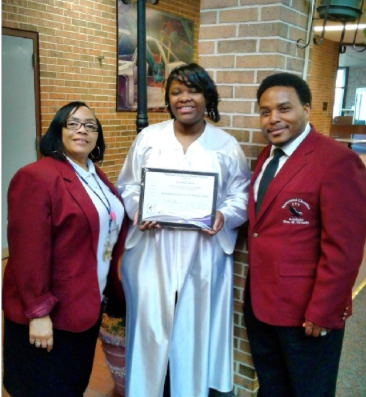High School (9 – 12)
High School at Pentecostal Christian Academy endeavors to create an environment in which each student can find an area to shine. While all students will benefit from our rigorous college preparatory curriculum, we don’t limit our pursuit of excellence to the classroom. The typical PCA student is not only serious in the classroom, but also eager to make an impact outside the classroom to balance all four aspects of school life: the Spiritual, the Academic, the Athletic, and the Artistic.
Our skilled faculty fosters in our students a desire to know more, and to ask the questions that will help them achieve their goals. It is only by teaching students to formulate their own questions that they will grow as lifelong and self-sufficient learners, and that is our goal as a school. While we are preparing students to be successful in college and in life, we are also preparing them to be leaders of the next generation, and by encouraging critical thinking, creative problem solving, and fully prepared to carry out the New Testament Ministry of Jesus Christ for the world in which we live.
 Our class sizes allow students and teachers to interact in meaningful ways, and for families to be part of the learning process. Because our teachers love to learn, our students follow that lead and grow to understand that it is the process that is most critical, in addition to simply measuring the output. We engage with all that the world has to offer, but in a meaningful way. While we are on the technological cutting edge, we work to ensure that technology serves our curriculum and goals, rather than the reverse. We want our students to use all the tools at their disposal, and it is our responsibility to engage them in this regard.
Our class sizes allow students and teachers to interact in meaningful ways, and for families to be part of the learning process. Because our teachers love to learn, our students follow that lead and grow to understand that it is the process that is most critical, in addition to simply measuring the output. We engage with all that the world has to offer, but in a meaningful way. While we are on the technological cutting edge, we work to ensure that technology serves our curriculum and goals, rather than the reverse. We want our students to use all the tools at their disposal, and it is our responsibility to engage them in this regard.
High School Objectives
- To promote intellectual growth by maintaining high scholastic standards, a flexible curriculum and a class size that permits close teacher-pupil relationships and individual instruction.
- To foster personal development by helping each child develop strong values of mercy, grace, forgiveness and spirit of compassion;
- To foster social development by insisting upon respect for the needs and rights of others and by providing opportunities for leadership and service;
- To foster physical development by encouraging sound nutrition and good health habits and encouraging participation in individual and team sports; and
- To foster the development of an aesthetic sensibility by offering varied opportunities for creative self-expression and providing instruction in the history and theory of the arts.




